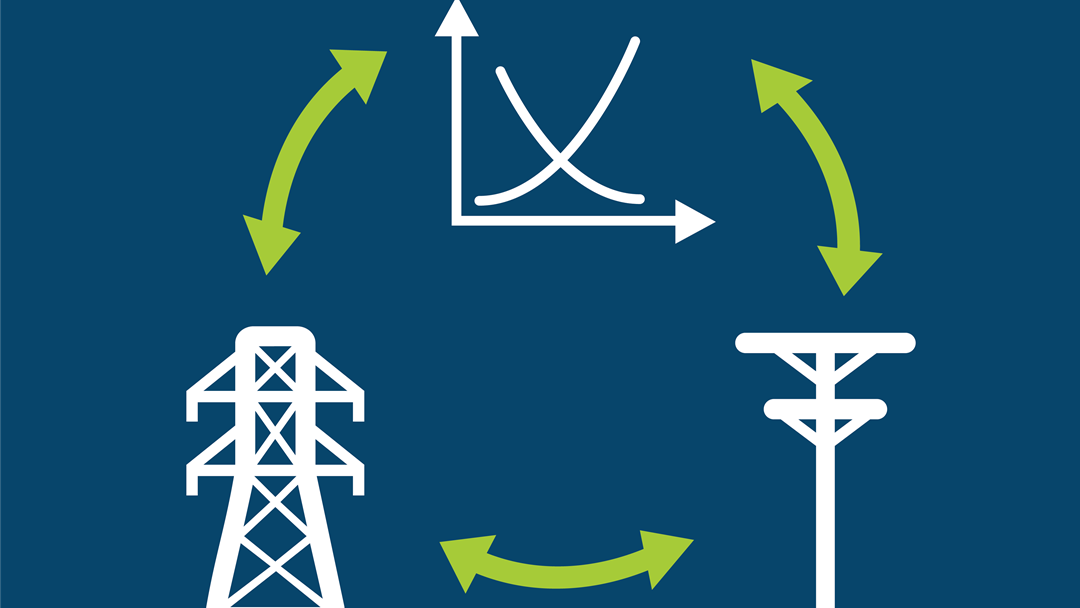- Name
- Magnus Korpås
- Title
- WP3 Lead
- Organization
PhD: Optimal coordination of renewable sources and storage in energy-constrained power systems
PhD Per Aaslid: Thesis for the Degree of Philosophiae Doctor
Faculty of Information Technology and Electrical Engineering, Department of Electric Power Engineering, NTNU, 2022:188.
Abstract
Integrating high levels of variable renewable energy sources (VRESs) in power systems imperils the security of supply. Energy storage systems (ESSs) contribute both to cost reduction through increased and improved utilization of VRESs, as well as to securing the supply in periods with low generation from VRESs.
The work in this thesis has considered the modeling of microgrids (MGs), small scale power systems, with a high level of VRESs and ESSs and limited dispatchable generation capacity where VRESs and ESSs contribute to the security of supply. Although the presented work focuses on MGs, the findings are also relevant for larger systems. Since these systems rely on ESSs, where the ability to deliver power depends on a sufficiently high state-of-charge (SOC), they are vulnerable to persistent low generation from VRESs. Future generation and demand should therefore be considered in operation planning models with sufficient foresight, and for a broad range of possible scenarios.
The implemented methods include:
- A detailed non-linear battery optimization model representing the battery cell voltage and the converter efficiency with spline function based on empirical battery data. The model is capable of operating closer to the operational limits of the battery compared to existing simpler optimization models.
- A linear multi-stage stochastic power system model using stochastic dual dynamic programming (SDDP) considering degradation due to cyclic and SOC dependent calendar degradation. The model can increase the expected lifetime of a battery by more than four years. The model results also show that it is advantageous to consider battery degradation in coherence with stochastic optimization.
- A stochastic power system model using SDDP considering both short-term uncertainty within weather forecast horizon and long-term uncertainty for infinite foresight. Whereas rule-based operation and deterministic optimization causes significant load shedding in critical periods, the implemented method is superior at keeping the load shedding very low while still retaining low generation costs.
The solution of stochastic dynamic programming based methods also has a useful representation with respect to valuating stored energy for systems of any size dominated by VRESs. The value of stored energy changes in time due to variations in future expected generation and demand, and it also changes with the SOC for itself and all other ESSs in the system. The value of stored energy is a useful quantity for valuating the stored energy in detailed models, for real-time operation, and for bidding into competitive markets.
The work was financed as an industrial PhD through SINTEF Energy Research by the Norwegian Research Council, and was also associated with CINELDI, as a part of the research area Interaction DSO/TSO.

Overview of the research papers
- P. Aaslid, M.M. Belsnes, O.B. Fosso: "Optimal microgrid operation considering battery degradation using stochastic dual dynamic programming", SEST 2019 - 2nd International Conference on Smart Energy Systems and Technologies, Institute of Electrical and Electronics Engineers (IEEE), Sep. 2019.
- P. Aaslid, F. Geth, M. Korpås, M.M. Belsnes, O.B. Fosso: "Non-linear charge-based battery storage optimization model with bi-variate cubic spline constraints", Journal of Energy Storage, vol. 2, 2020.
- P. Aaslid, M. Korpås, M.M. Belsnes, O.B. Fosso: "Pricing electricity in constrained networks dominated by stochastic renewable generation and electric energy storage", Electric Power Systems Research, vol. 197, 2021.
- P. Aaslid, M. Korpas, M.M. Belsnes, B.O. Fosso: "Stochastic Optimization of Microgrid Operation With Renewable Generation and Energy Storages", IEEE Transactions on Sustainable Energy, pp. 1–1, 2022.

